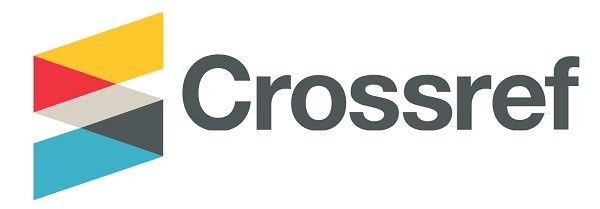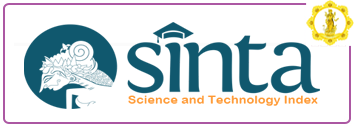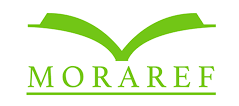PENERAPAN MODEL PROBLEM BASED LEARNING (PBL) UNTUK MENINGKATKAN HASIL BELAJAR PENDIDIKAN AGAMA HINDU DAN BUDIPEKERTI PADA SISWA KELAS V SD NEGERI 6 BATUAGUNG TAHUN PELAJARAN 2024 / 2025
DOI:
https://doi.org/10.25078/sa.v5i2.4295Keywords:
pendidikan agama hindu, PembelajaranAbstract
Education is a process that enables students to think actively, allowing them to develop their potential to the fullest. One of the efforts made by teachers to improve the quality of learning is by designing various learning scenarios and methods that support the learning process in the classroom.
This study aims to improve the learning outcomes of students in Hindu Religious Education and Character Education for fifth grade students at SD Negeri 6 Batuagung in the first semester of the 2024/2025 academic year through the implementation of the Problem-Based Learning (PBL) model. This research uses the Classroom Action Research (CAR) method, with the research subjects consisting of 15 fifth-grade students, comprising 7 male students and 8 female students. The data on students' learning outcomes were obtained through written tests conducted at the end of each learning cycle. The collected data were then analyzed to calculate the classical learning completeness and the average class score.
The results of the study show that the implementation of the PBL model in Hindu Religious Education and Character Education has a positive impact on improving students' learning outcomes. Based on the data analysis, in cycle I, the students' learning outcomes were categorized as "Medium" with a learning completeness percentage of 73.33%. However, in cycle II, the students' learning completeness increased to 86.67%, which falls into the "Good" category. The improvement in learning completeness from cycle I to cycle II reached 14.55%. This indicates that the application of the PBL model can improve learning outcomes in Hindu Religious Education and Character Education for fifth grade students at SD Negeri 6 Batuagung.
Keywords: PBL Model, Student Learning Outcomes
References
Agung, A.A. Gede. 2005. Metodelogi Penelitian Pendidikan. Singaraja: Institut Keguruan dan Ilmu Pendidikan Negeri Singaraja.
Agung. 2010. "Penelitian Tindakan Kelas (Teori dan Analisis Data dalam PTK)". Makalah disajikan dalam Workshop Jurusan Pendidikan Guru Sekolah Dasar. Fakultas Ilmu Pendidikan Universitas Pendidikan Ganesha. Singaraja 27 September 2010.
Albi anggito,dkk. Metodelogi Penelitian Kualitatif. (Jawa Barat: Jejak,2018), hal 46
Ali Mudlofir, Evi Fatimatur Rusdiyah. 2017.Desain Pembelajaran Inovatif. Jakarta: Raja Grafindo Persada. Hal 72
Asih Wisudawati dan Eka Sulistyowati. 2014. Metodelogi Pembelajaran IPA. Jakarta :Bumi Aksara. Hal 89
Depdiknas.2006. Bunga Rampai Keberhasilan Guru dalam Pembelajaran (SMA, SMK, dan SLB).vJakarta: Depdiknas.
Hassoubh, Z.I. 2004. Developing Creative and Critical Thingking, Cara Berfikir Kreatifdan Kritis.
Bandung : Nuansa. Hal 44
Muhammad Yaumi, “Media dan Tekhnologi Pembelajaran” (Jakarta: Prenadamedia Group,2018), hal.7-8.
Muri Yusuf. 2014. Metode Penelitian Kuantitatif, Kualitatif, & Penelitian Gabungan.Jakarta:Kencana.vHal 228
Nurhadi. 2006. Pendekatan Kontekstual (Contekstul Teaching and Learning). Jakarta:.
Depdiknas. Hal 23
Pudja, Gede. 1985. Pengantar Agama Hindu, Jakarta : Balai Pustaka
Purwanto, M. Ngalimin. 2000. Ilmu Pendidikan Teori dan Praktis. Bandung: Remaja Rosdakarya.Purwrdarminta, WJS. 1998. Kamus Besar Bahasa Indonesia. Jakarta: Balai Pustaka.
Ramayulis. 2008. Ilmu Pendidikan Islam . Jakarta: Kalam Mulia. Hal 240
Rusman. 2010. Model-Model Pembelajaran Mengembangkan Profesionalisme Guru.Jakarta:Rajawali Pers. Hal. 229
Sardiman. AM. 2001. Interaksi dan Motivasi Belajar Mengajar. Jakarta : Raja GrafindoPersada. Seifert, Kelin. 2007. Pembelajaran&InstruksiPendidikan. Jogjakarta: IRCiSoD.
Sugihartono, dkk. 2007. Psikologi Pendidikan. Yogyakarta : UNY Press. Hal 80-81
Sugiyanto. 2010. Model- Model Pembelajaran Inovatif. Surakarta : Yuma Pustaka.Tarjo. Metode Peneltian (.Yogyakarta: Budi Utama,2019), hal.45
Trianto. 2007. Model-Model Pembelajaran Inovatif Hal 67-68
Trianto. 2007. Model-Model Pembelajaran Inovatif Berorientasi Kontruktivistik. Jakarta:Prestasi Pustaka. Hal 85-86
Wardani, I.G.A.K, dkk. 2007. Penelitian Tindakan Kelas. Jakarta: Universitas Terbuka. Zubaedi. 2005. Pendidikan Berbasis Masyarakat. Yogyakarta: Pustaka Belajar
Downloads
Published
Issue
Section
License
Copyright (c) 2025 Sang Acharya: Jurnal Profesi Guru

This work is licensed under a Creative Commons Attribution-NonCommercial-NoDerivatives 4.0 International License.












